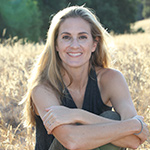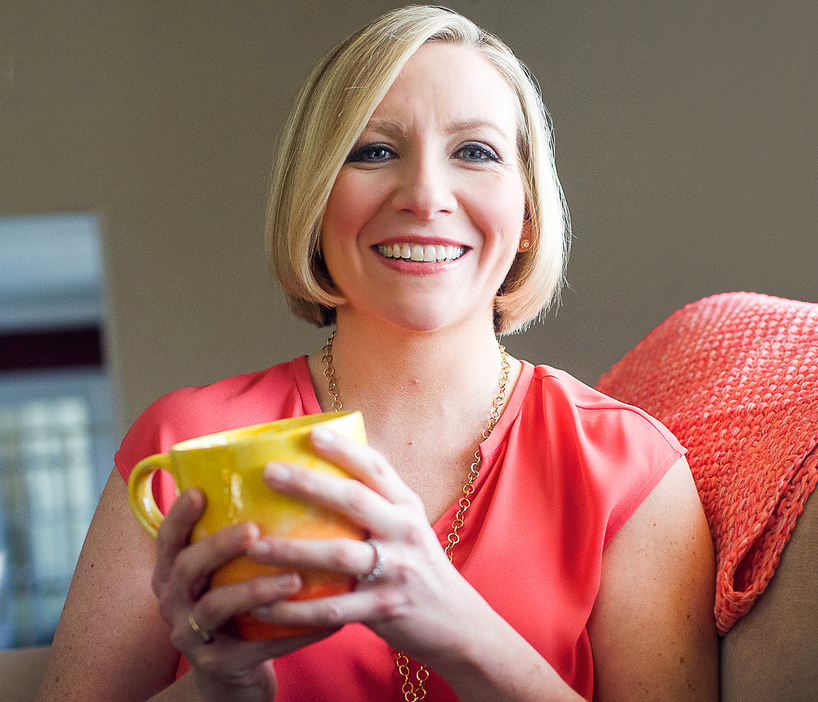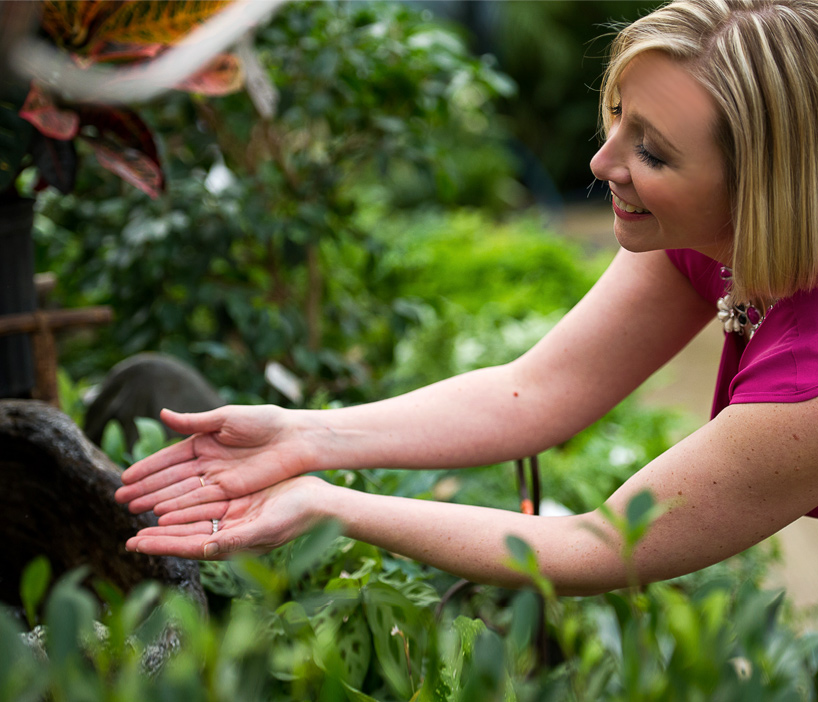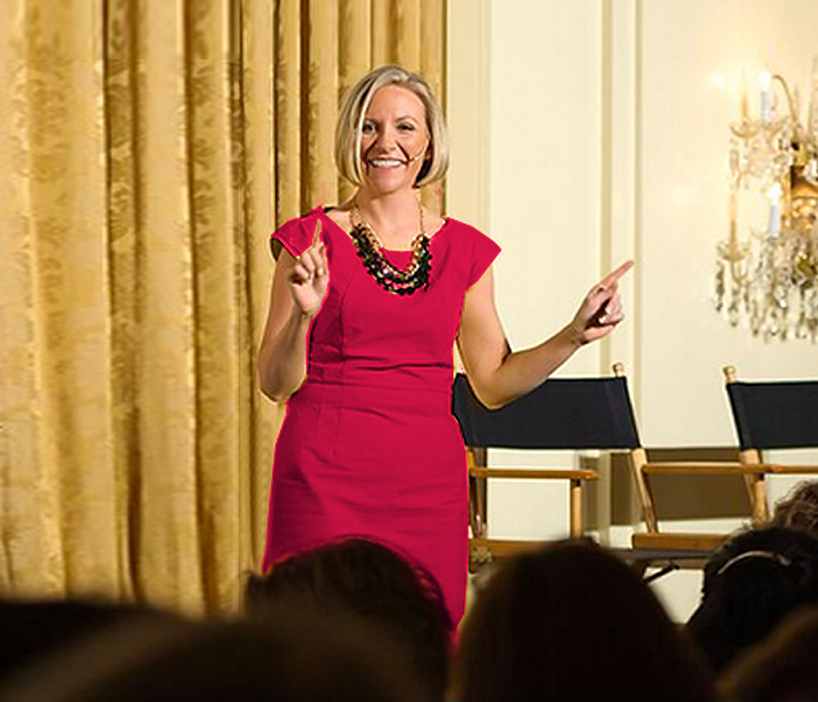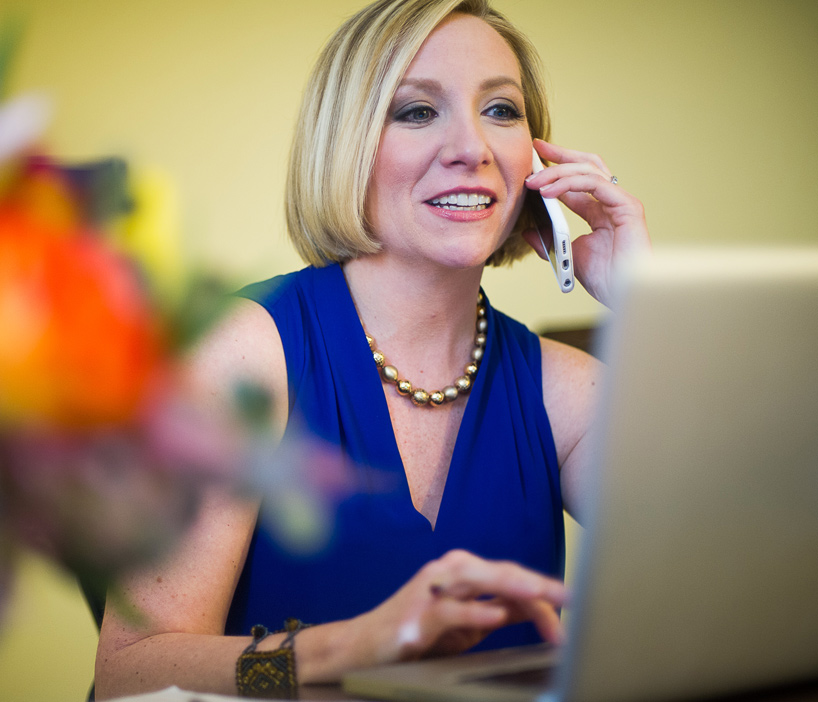There’s been a lot of conversation about “the enemy we’re fighting” when talking about COVID specifically and all things pandemic related. Patty explains that this language is adding to the chaos.
When we use fear, then there’s a common experience of tribal alignment.
We feel like we must pick a side and invalidate anyone who isn’t part of our tribe. It’s the primal call for safety from our brain. Us versus them.
But we know that’s not how the world works. If you’re ready to get a new (refreshing) view about how to deal with polarization this episode is for you.
Patty outlines how to be in community with others as a way to come together. Find the middle ground where love exists. Where it’s okay to have your own opinion and thoughts as well as understanding that others may see things differently.
Patty shares 3 specific steps that we can all implement to reduce fear and tribalism and invite love and community.
——————————————————————————————————
Transcript
(00:02):
Welcome to the wealth and purpose podcast, where people who are led by their hearts come to learn the secrets to creating wealth in a way that feels really good and live they’re purposefully in the process. I’m your host, Patty Lennon. I’m an ex type A corporate banker turned intuitive business coach. I’m also a wife, a mom to two. Pre-teens a professor girl scout leader. And well, Hey, you get it. Like you I wear a lot of hats, whether you’re looking for inspiration to get started or strategies to get growing, I am here to help you create abundance in every area of your life and business.
(00:41):
This is Patty here. Welcome to this episode of the wealth and purpose podcast. And today I want to talk about the real enemy that we’re facing right now on this planet. There’s been a lot of discussion, at least where I live in the States. And specifically in the state I live in Connecticut about, this is the enemy we’re fighting using language in media, that infers enemies and underneath all of that really that energy is fueled by exactly one enemy. And that enemy is fear. And the way that fear is really showing up in the world right now is in the spirit of otherness. So I’ve talked a lot about this and really my goal with this podcast, my intention with this podcast is to create space for you or maybe someone that you’re going to share this podcast with creates space for other people to not be so, so difficult to be around and to potentially open up space for you to accept people in your community that maybe have different ideas.
(01:59):
And I know at the stage that we’re in, at least in the States, that’s really hard because right now there is a dialogue going on that essentially, if you, you know, are of one side of the political spectrum, and honestly I can even call it the political spectrum, because I don’t even believe our parties are behaving like themselves anyway, what they stand for. But, you know, there’s definitely these extremist views and you’re either part of one extreme or the other. And if you’re part of one, you have to see the other one as an enemy and you can not even be willing to consider that they could be right, right. Like that that’s evil essentially. And this is really the dialogue that’s starting to happen. And that’s why I know that the real enemy we’re facing right now is fear. And by fear, I mean, fear has many children.
(02:50):
It can be anger and hatred and violence. And specifically what I’m talking about, which is otherness. And so otherness is that, you know, the experience where you are really committed to seeing yourself as part of a group where there’s another group, where you’re either part of what you are part of or your other, right. You’re either with me or you’re against me and psychologically where this comes from. And I’m going to, if you followed this podcast for a while, you know, I’ve talked a lot about this with, you know, our, the way our brain developed from the amygdala, from the reptile brain is it developed with this fear response. And this fear response is really about keeping us safe. And so I’m going to pull all that together. And some of this may be, you may be hearing this for like the millionth time, if you’ve been following me for awhile and you may be hearing it for the first time, which I’m going to go back and go through it slowly, essentially a part of our brain, the amygdala is that part that releases that fight or flight response, fight flight or freeze.
(04:03):
And, you know, that’s, when you hear people say that we’re acting, you know, our stress responses. Sometimes we, our bodies react as if there’s that saber tooth tiger waiting outside the cave, right. You know, it’s like we see everything is this like life or death situation. A lot of times it’s actually not the saber tooth tiger that we’re dealing with from a, from an evolutionary standpoint, what we’re actually dealing with is the fear that we’re going to be thrown out of the tribe. Thousands of years ago, when we existed as tribal people, it was necessary to be included in the tribe. Because if you weren’t part of a tribe, you likely couldn’t survive because you wouldn’t have embodied all the skills necessary to survive in the world along you’d need hunters and gatherers and nurturers and doctors or medicine, people, uh, shamans the warriors, you know, all the roles would need to be played in.
(05:04):
Each person would need to play their role for the entire tribe to survive. And also just that entire group safety idea where, you know, many hands can, um, make light work. And then also with many eyes that you can be, you can watch for danger things that our ancestors are many, many generation and go ancestors dealt with are still actually held in our DNA. Right? And then our Migdal is still evolving from this idea that we need to be a part of the tribe. It’s one of the reasons why public speaking is one of our biggest fears as a people is not because speaking in front of a group of people is what’s hard. It’s that we’re afraid that what we say or the way we say it may cause us to be rejected. And that then triggers that whole being thrown out of the tribe.
(05:57):
Well, if we’re afraid of being thrown out of the tribe, then what makes us feel safe is when we’re included in the tribe. And one more in a year like we are in we’re so much is going on. Definitely. I can S I, a lot of what I’m going to say is going to be informed by living in the States. And I know it looks different in every country, but I can only speak to what I’m living in this country right now, the racial tension, the political tension, and then just the overall tension from being in a pandemic has really, you know, heightened our stressors and what’s happening then is we’re feeding a lot into our amygdala’s power. Meaning when our stress responses are up or medulla, there’s a lot more blood flowing to the amygdala. And as a result, it’s making a lot of the decisions.
(06:48):
And so we’re looking for easy ways to become safe and the easy way to become safe, especially when you’re fatigued is to find your tribe. And then once you find your tribe is knowing what’s not your tribe. And that dynamic starts to build a belief that like, if you’re saying something that tells me that the tribe I belong to is not good, then I’m going to mean Nat at you. You’re my enemy, because I need this tribe to be safe. I need this tribe to be my home. And you can’t see that this is bad because now you’re saying my safety is bad. Now that cannot, that can sometimes feel illogical. And I’m going to speak specifically to, you know, we’ve got our two presidential candidates while we have our president and he will, you know, he’ll be on the ballot, president Trump. And then we have Joe Biden.
(07:45):
If I’m for Biden, then critics are going to say, you know, that he’s there saying he’s not mentally stable, that he’s older, you know, all throwing all these jobs, right? Most of them baseless, but you know, maybe some of them are based in reality, but throwing them with such denim to make it be it’s bad. And, and what happens when you do that, when you throw venom at the other, when you create this sense of otherness, and then you start throwing like arrows, right? You know, really making this disparity between the two sides, be something worth fighting over something, worth deteriorating into some verbal war, toxic discussions, you risk fortifying the other side. So if I’m the recipient of those jabs, most likely I’m not going to suddenly go, Oh, you’re right. Let me go to your side. I’m going to strengthen, right. I’m going to strengthen my resolve.
(08:50):
And I’m going to pulling closer my tribe, and that’s really what’s happening. And that otherness creates polarization it’s happening as well with the way with masks, right? Wearing masks. If you’re, you know, if you don’t want people to wear masks, the criticism is that people who are wearing masks are sheeple, right. That they’re sheep. And then if you’re wearing a mask, really, maybe you don’t even necessarily believe a hundred percent in wearing a mask, but you’re doing it to protect others who you do believe that it’s helping them, whether it’s helping them mentally or physically, or in some other way, psychologically, you’re doing it as a good member of society. And someone’s attacking you and telling you that you’re doing it because you’re not thinking, you know, cause you’re just a follower. Well then that’s going to strengthen your resolve. And you’re really going to shut down a hearing what the other side has to say.
(09:49):
And so what’s happening is on all of these fronts, the jabs are being thrown out from each side are deteriorating the ability for the middle to exist, right? And it’s causing this otherness to become more and more extreme in this polarization to become more and more extreme. And the problem is that that polarization isn’t real, it’s not real like extremes, like what we’re experiencing in belief systems and what feels so alive, especially in social media and on mass media. That’s not the majority of the people, right. There are very few absolutes. And certainly when it comes to a pandemic that no one has a guidebook for when it comes to the deterioration of a political parties, like what we’re experiencing to see either one of them are perfectly good, right? Or absolutely bad. All of it is leaving out all the space in the middle.
(10:54):
And this space in the middle is where we come together. The space in the middle is where otherness starts to dissipate. And the reality is we are more than our, than our political beliefs or opinions about a mask or, um, any, any number of topics. And we are relational beings. We are human beings are relational beings. And our ability to relate to others, to be in community with others, which is different than traps, right in community means you live and work within a group of people, but not where you don’t have the freedom of your own individual expression. And you can’t follow your own path, but where you are coming together, understanding that you are not an Island, right? And that there’s, this need to live and work together. And the more we feed this otherness, the more we move further and further and further away from what we want.
(11:56):
Because even as we express our views right, about anything, let’s say it’s about wearing a mask. Well, let’s say you’re pro mask and you want everyone to wear a mask. Well, throwing jibes at people who aren’t wearing masks are fortifying their resolve to continue down that path, right? It’s only going to be in the middle ground where we’re going to find a way to work together in a way for those sides to meet. And the more extreme, the more otherness we create, the harder it is, we’re going to find that middle ground. And it’s really that middle ground where love exists. It’s where peace exists. And this translates into the way we treat ourselves. And this is something that, you know, I talk about all the time in receiving school. And you’ve probably heard me talk about it. Here is one of the core issues.
(12:50):
Most people, feet face in having joy in having happiness and having peace in themselves is that they reject parts of themselves, that they make parts of themselves other, because they were parts of themselves that their family didn’t accept that their friends didn’t accept. And so they rejected it because again, they wanted to stay part of the tribe. But that otherness is what leaves us feeling incomplete. It leaves us unsatisfied. It’s when we, uh, when we allow in those parts of ourselves, that we really can find our wholeness, that we can find our peace. And so then I think I just talked about this a couple of weeks at one of the most com places that we don’t many people reject themselves is the lazy self. Like I’m not lazy. It’s really being lazy as a horrible thing. And so I reject the part that’s lazy, but the problem is if you completely reject that part of you that wants to lay on the couch and wants to do nothing, it’s that same part of you that knows how to balance time.
(13:53):
It’s that same part of you that understands how to both work and rest, to make space for rest, to make space for play. And when you stop rejecting it and you integrate it and allow it to have it say, that’s when you start to find full and complete and whole answers for the whole of you. And the same thing goes with our communities. You know, I am a person who is currently wearing a mask, believes this is the right thing to do. And for a few reasons, and my reasons, it doesn’t matter. But here’s the thing for the people who don’t believe that we should be wearing mass. I have to find a way to hear what it is that they’re so concerned about because there is likely a solution, right? There’s likely a solution in the middle ground, but we’re staying so far apart that we can’t even hear what those solutions might be.
(14:49):
Those compromises, those middle grounds. We can’t find them anymore. And we have to, we have to find those middle grounds because without them, that’s where we create warring factions. That’s where we create full on enemies that we fight against. And so I want to talk about a couple of tools that you can use to sort of embrace this, this effort, to reduce this otherness. And, you know, certainly start within yourself. You know, if there’s a part of you, there’s a part of your instinct or your inclination, and you just constantly reject it, inviting it back in, we’ll start to give you that space for wholeness. But then when you look outside yourself, you know, there’s one, one tool that I just wish everyone would employ immediately. And that is, do not share information intended to inflame right now in again in this country, is there’s these memes going around that have quotes from Biden and from Trump, right?
(15:52):
And you can just tell, by the way they’re designed, they’re black. And then they typically have like a white or red foreshadow. They’re very harsh quotes. And those are political tools. They are meant to increase otherness. They are meant to create an inflame fear resistance, please don’t share those. Don’t share anecdotes, right? Don’t share anything. That’s not actual source information. So for instance, if there is something that president Trump has said, that really concerned, you find the source of that, and then create your own content to share that and share your commentary. It doesn’t mean you have to keep your opinion to yourself. It means come from a place of understanding that if you want to share information and you want other people who don’t necessarily believe the same things you do to hear you throwing means out there, there are mentoring, flame is going to do the opposite of that effect.
(16:56):
Right? The same thing goes for the way we treat ourselves internally. You know, like when we say like, when we do something that we had committed not to doing, like, you know, you blow off getting work done and you end up going down the rabbit hole of Facebook, let’s say, you know, and like just beating yourself up over that, right. That’s a really typical rejecting of self behavior. Well, don’t do that. Actually start to listen to yourself and go, okay, wait a second. So I committed to getting something, this project on. And instead of getting this project done, I was on Facebook. Let me really figure out why, let me really figure out why I did that. Knowing how important the other thing was to me. So we can do this internally for ourselves to reduce the otherness we have within ourselves. And then we can do it.
(17:43):
We can behave the same way externally. And so when, you know, someone puts something up in media, that’s inflaming, reach out to them, reach out to them privately don’t bash them publicly, but reach out to them privately have a conversation. Conversation is one of the best tools we have right now to find the middle ground, because the reality is most of us are more the same than we’re different and finding those common grounds and common ideas really help people come together. The second tool is to listen and hear what another person is saying when they really are making an effort to communicate. You know, when we get into these polarized spaces of otherness, we shut down, we intentionally shut down the filter, or we put up a filter that just only allows what we already believe to be true to come through. And so if you’re frustrated with president Trump, if you know, you’re, one of the people are calling him evil or many, many things being placed upon him, again, I’m, I’m not saying that’s right or wrong right now, but if that’s the case and you’ve set yourself up for that otherness, you’re going to hear and feed and listen to everything from president Trump and his supporters through that filter and releasing that filter and really listening to what’s being said, and really thinking it through and coming up with a conclusion that isn’t spoonfed to you, right?
(19:19):
The same thing with Biden is really listening to what he says. And, you know, someone commented that he’s in a group, I was in that he’s behaving in a way that he appears to be senile and they made references to vague references. And so I went and I pulled up like three pieces of content that he would wear. He was not reading off of a teleprompter and I could find no basis for what that person said. And I asked them, I said, I went out, I went looking for it. I could not find it. If you could please share that with me, show me what you’re hearing, show me what you’re seeing. I want to understand. I want to understand where you’re coming from, but if they can’t be responded to, with respect, they’re not going to be able to be coming into the conversation with respect.
(20:12):
Now I will say the person I talked to has still not responded to me, but that’s okay. I did what I could do. And they know now that they need to come to the table, at least in a group that I’m president with real content, right. Real data. And that’s so much of what’s missing right now is having information. I grew up a very committed, conservative, Republican conservative. So I know what that side of the aisle, so to say, looks like, feels like where the thought process comes from. And so sometimes I can see things in what people are saying, where they’re not necessarily saying it the way that other people can hear it, but because I’ve had that perspective, I know what the heart of the issue is. I tell them privately what you’re saying, can’t be heard right now. And I think this is really where you’re coming from.
(21:12):
And you’re going to have to dig deeper and come up with ideas that change minds, if you really want to do anything other than just build this hatred between groups of people. And so that second tool is really listen and hear what the other person is saying. Don’t manipulate what they’re saying to mean something. Listen to what they’re saying, hear what they’re really saying, and look for the truth. And you know what? It takes a lot of time and energy. It really does. I get that. And that’s part of the problem of where we’re at is that so many of us are exhausted. I’m raising my hand. I am tired. There has been so many small and big battles. I’ve been fighting on so many fronts and it’s fatiguing. And when that fatigue starts to set in, then our ability to do anything of what I’m talking about, gets lower and lower and lowering.
(22:09):
You’ve probably been listening to this and thinking, God, that feels so heavy. And if you have the nuts, that’s really the third tool I want you to embrace. And this is actually the most important one. And that is step away from the conversation and rest. There’s probably many, many places around the world where communities are not fatigued the way we are, but I know in the States, and I would say all Western culture, we’re deeply, deeply fatigued, and we need to rest. We need to rest. We need to refill. We need to refuel. And it’s okay to step away from the conversation if that’s where you’re at. Because if you’re staying in a conversation that’s controversial and you’re just pouring more and more gasoline onto the fire, you are part of the problem. And I know that’s hard to hear, but it’s true. It doesn’t mean you can’t have a position.
(23:07):
It doesn’t mean you can’t feel strongly about something. But if all you’re doing is sharing inflammatory information and throwing jabs at people, you are just contributing to the pool of fear. That’s out there. We are all swimming in this globe in this community of humanity and at any moment in time where either pouring fear or love into it, and fear creates otherness and love creates solutions. And depending on what you want, you must must choose your, your thoughts and your actions accordingly. And I will tell you, this has been very hard for me, probably seeing that I, if you follow me on social media, I’ve been generally quiet for the last two months. And the reason is, is that because I’ve been looking internally and I have been, you know, deciding what is alive for me and where I need to refuel. And I’ve also been putting most of my energy into private conversations because I really don’t think publicly shaming people moves us in a positive direction and conversations deteriorate very quickly when they’re in a public setting.
(24:24):
So short of questioning people, when I feel that they really are sharing something, that’s just blatantly inaccurate and asking them for clarification. Most of the conversations I’ve been taking offline, and some people show up in a really open and honest way. And I’ve learned from those conversations, other conversations get shut down and that’s, you know, that’s okay too. I did my best and that’s all I can do. Right? That’s all we can do. But I think it’s important to remember that there are so many more good people, so many more loving people out there than what we feel right now, because the extreme voices are taking up all the space. And for those of us that wants to pour love into this conversation, it’s important for us to do it in a way where we can be heard. And that is my hope and my goal for all of us.
(25:27):
I know that was a little more preachy than I usually get. And I promise you I’m, I am trying to live what I just shared with you. There’s times where I just want to flip out on someone are really do that the short-sightedness of it or the, the harshness of it, or the cruelty of what’s being said, and I know how hard it is, slow down and not react to that, but it’s worth it. It’s worth it because for every one conversation that we move in the direction of love away from fear away from otherness, to understanding, to love it has a huge, huge ripple effect and it’s meaningful. And that is the difference we can make right now. Thank you so much for listening. I send you my love and I send you loads of peace. I wish you rest enjoy an understanding
(26:19):
And all the things that your heart needs, right. Hey, thanks for listening. And if you know someone who needs to hear this message, please share this podcast with them. And if you’re feeling really generous, I love for you to leave us a review on your favorite podcast app. It helps us reach many more people, and it fills my heart with so much joy. When I hear what you had to say about what you heard, I am cheering for your success. Have an amazing day.
Thanks for being here and reading my message. I want you to stay connected with me so that I can share all future communications with you.
Please enter your name and email below to join my community.
Success! Thank you for joining. You'll receive a confirmation in a while.



